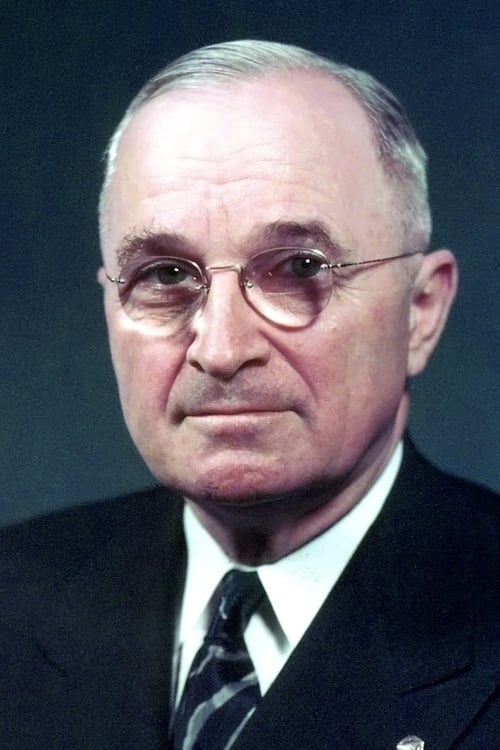Harry S. Truman
Birth : 1884-05-08, Lamar, Missouri, USA
Death : 1972-12-26
History
Harry S. Truman was the 33rd president of the United States, serving from 1945 to 1953. A leader of the Democratic Party, he previously served as the 34th vice president from January to April 1945 under Franklin Roosevelt and as a United States senator from Missouri from 1935 to January 1945.

Self - Politician (archive footage)
In 1945, two young American soldiers, brothers Budd and Stuart Schulberg, are commissioned to collect filmed and recorded evidence of the horrors committed by the infamous Third Reich in order to prove Nazi war crimes during the Nuremberg trials (1945-46). The story of the making of Nuremberg: Its Lesson for Today, a paramount historic documentary, released in 1948.

Himself (Archival Footage)
In 1946, Isaac Woodard, a Black army sergeant on his way home to South Carolina after serving in WWII, was pulled from a bus for arguing with the driver. The local chief of police savagely beat him, leaving him unconscious and permanently blind. The shocking incident made national headlines and, when the police chief was acquitted by an all-white jury, the blatant injustice would change the course of American history. Based on Richard Gergel’s book Unexampled Courage, the film details how the crime led to the racial awakening of President Harry Truman, who desegregated federal offices and the military two years later. The event also ultimately set the stage for the Supreme Court’s landmark 1954 Brown v. Board of Education decision, which finally outlawed segregation in public schools and jumpstarted the modern civil rights movement.
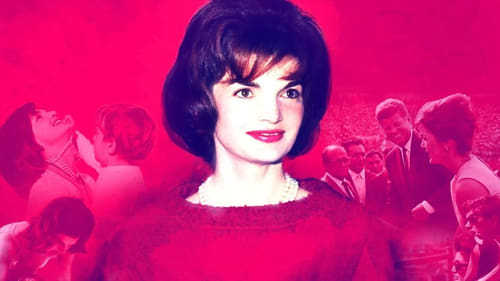
Self (archive footage)
Jackie Kennedy Onassis was the most famous woman in the world, impossibly glamourous and universally admired. She was also complex, layered, and extremely guarded, making her endlessly fascinating and enigmatic. This incredibly compelling film provides a definitive exploration of her life, from iconic first lady to widow, unofficial royalty and fashion icon.
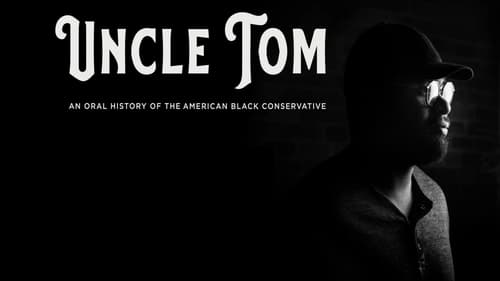
Self (archive footage)
In a collection of intimate interviews with some of America's most provocative black conservative thinkers, Uncle Tom takes a unique look at being black in America. Featuring media personalities, ministers, civil rights activists, veterans, and a self-employed plumber, the film explores their personal journeys of navigating the world as one of America's most misunderstood political and cultural groups: The American Black Conservative. In this eye-opening film from Director Justin Malone and Executive Producer Larry Elder, Uncle Tom examines self-empowerment, individualism and rejecting the victim narrative. Uncle Tom shows us a different perspective of American History from this often ignored and ridiculed group.

Self (archive footage)
A contemporary history of Korea(s) from a unique point of view that embraces the inner history of both South and North Korea in a single narrative.
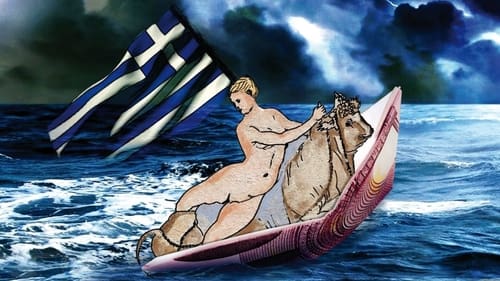
Self (archive footage)
A journey through Greece and Europe’s past and recent history: from the Second World War to the current crisis. It is a historical documentary, a look into many stories.
«If Democracy can be destroyed in Greece, it can be destroyed throughout Europe»
Paul Craig Roberts

Self (archive footage)
Roy Cohn personified the dark arts of American politics, turning empty vessels into dangerous demagogues - from Joseph McCarthy to his final project, Donald J. Trump. This thriller-like exposé connects the dots, revealing how a deeply troubled master manipulator shaped our current American nightmare.
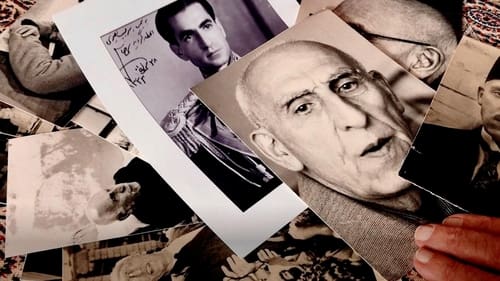
Self - Politician (archive footage)
Tehran, Iran, August 19, 1953. A group of Iranian conspirators who, with the approval of the deposed tyrant Mohammad Reza Pahlavi, have conspired with agents of the British MI6 and the US CIA, manage to put an end to the democratic government led by Mohammad Mosaddegh, a dramatic event that will begin the tragic era of coups d'état that, orchestrated by the CIA, will take place, over the following decades, in dozens of countries around the world.

Self (archive footage)
Shedding new light on a geopolitical hot spot, the film — written and produced by John Maggio and narrated by Korean-American actor John Cho — confronts the myth of the “Forgotten War,” documenting the post-1953 conflict and global consequences.

Self (archive footage)
Bill Clinton, Nicole Scherzinger and members of the Kennedy family reveal how JFK's sister Eunice used sport to change the lives of people with intellectual disabilities.

Self - Politician (archive footage)
How can the masses be controlled? Apparently, the American publicist Edward L. Bernays (1891-1995), a pioneer in the field of propaganda and public relations, knew the answer to such a key question. The amazing story of the master of manipulation and the creation of the engineering of consent; a frightening true story about advertising, lies and charlatans.
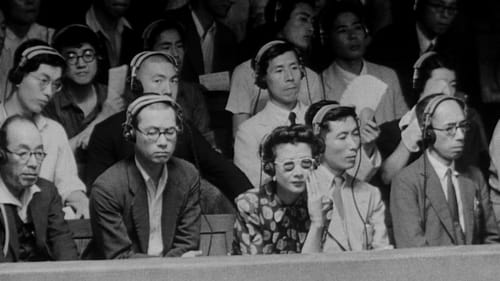
Himself (archive footage)
The story of the International Military Tribunal for the Far East, known as the Tokyo Trial, which, just after the Second World War, was established in Japan as a special jurisdiction in 1946 (it was closed in 1948) to judge the war crimes of the Japanese leaders; and how and why officials in Washington prevented Emperor Hirohito to be seen sat on the bench.
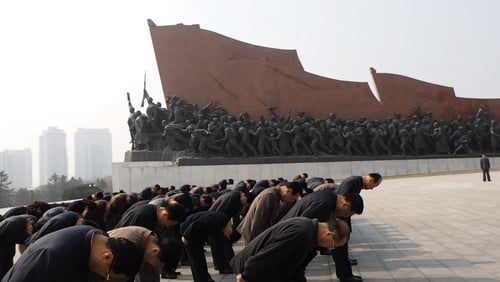
Self (archive footage)
North Korea. The last communist country in the world. Unknown, hermetic and fascinating. Formerly known as “The Hermit Kingdom” for its attempts to remain isolated, North Korea is one of the largest sources of instability as regards world peace. It also has the most militarized border in the world, and the flow of impartial information, both going in and out, is practically non-existent. As the recent Sony-leaks has shown, it is the perfect setting for a propaganda war.

Self (archive footage)
How, in 1945, after the end of World War II and the fall of the Nazi regime, the defeated were atrociously mistreated, especially those ethnic Germans who had lived peacefully for centuries in Germany's neighboring countries, such as Czechoslovakia and Poland. A heartbreaking story of revenge against innocent civilians, the story of acts as cruel as the Nazi occupation during the war years.
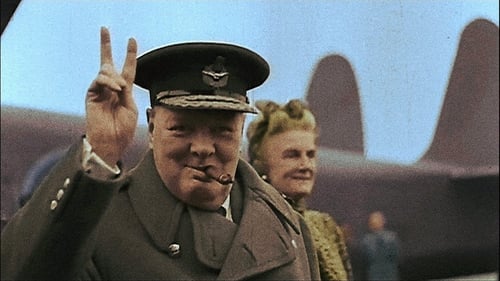
Self (archive footage)
A new look at the public and private life of one of the most important statesmen in the history of Europe: Winston Churchill (1874-1965), soldier, politician, writer, painter, leader of his country in the darkest hours, winner of the Nobel Prize in Literature, a myth, a giant of the 20th century.

Self (archive footage)
Oliver Stone charts the history of the United States from the Second World War to the present.

Himself
In 1961, David Susskind conducted a series of interviews with former President Harry Truman in Truman's hometown of Independence, Missouri. After picking Truman up at his home to take him to the Truman Presidential Library for the interviews over a number of days.

Self (archive footage)
A double portrait of two dictators who were thousands of miles apart but were constantly fixated on each other.
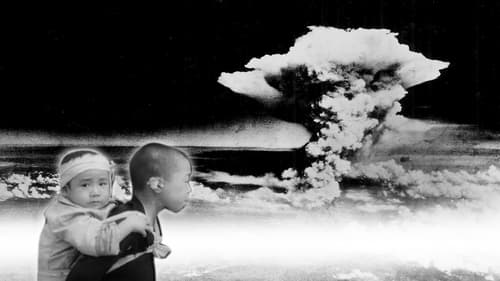
Himself (archive footage)
Steven Okazaki presents a deeply moving look at the painful legacy of the first -- and hopefully last -- uses of nuclear weapons in war. Featuring interviews with fourteen atomic bomb survivors - many who have never spoken publicly before - and four Americans intimately involved in the bombings, White Light/Black Rain provides a detailed exploration of the bombings and their aftermath.
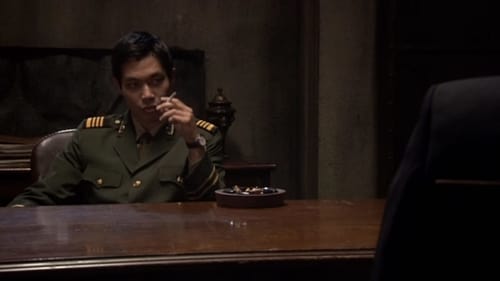
self (archive footage)
Strip Search follows several parallel stories examining personal freedoms vs. national security in the aftermath of 9/11; two main subplots involve an American woman detained in China and an Arab man detained in New York City.

Self (archive footage)
Since the late 18th century American legal decision that the business corporation organizational model is legally a person, it has become a dominant economic, political and social force around the globe. This film takes an in-depth psychological examination of the organization model through various case studies. What the study illustrates is that in the its behaviour, this type of "person" typically acts like a dangerously destructive psychopath without conscience. Furthermore, we see the profound threat this psychopath has for our world and our future, but also how the people with courage, intelligence and determination can do to stop it.

Self (archive footage)
It fought against international terrorism in South America and watched out for our allies abroad...but what else did it do?...What are the true secrets of the C.I.A.?

Himself
Polio at age 39, president at age 50. Explore the public and private life of a determined man who steered this country through two monumental crises: the Depression and World War II. FDR served as president longer than any other, and his legacy still shapes our understanding of the role of government and the presidency. A film by award winning filmmaker David Grubin. This is the second of four parts.

Himself (Voice) (Archive Footage)
Story about a WWII wife & mother who joins a local dance band to provide for family while husband at war. Romantic involvement with one of the band members make her decisions difficult when husband returns from war. Story watches the progression of the band as it grows into a popular, successful recording and touring group. Excellent music and soundtrack.

Himself (archive footage)
With the help of government-issued pamphlets, an elderly British couple build a shelter and prepare for an impending nuclear attack, unaware that times and the nature of war have changed from their romantic memories of World War II.
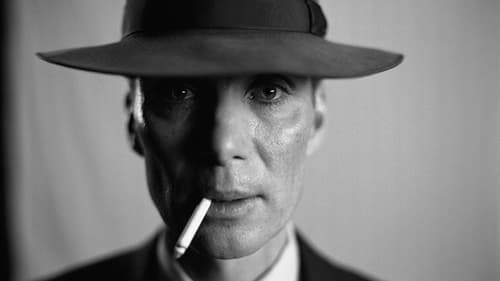
Self (archive footage)
The Day After Trinity (a.k.a. The Day After Trinity: J. Robert Oppenheimer and the Atomic Bomb) is a 1980 documentary film directed and produced by Jon H. Else in association with KTEH public television in San Jose, California. The film tells the story of J. Robert Oppenheimer (1904–1967), the theoretical physicist who led the effort to build the first atomic bomb, tested in July 1945 at Trinity site in New Mexico. Featuring candid interviews with several Manhattan Project scientists, as well as newly declassified archival footage, The Day After Trinity was nominated for an Academy Award for Best Documentary Feature of 1980, and received a Peabody Award in 1981.

Self - President of the USA (archive footage)
Catastrophe-No Safe Place is a 1980's documentary series presented by Charles Bronson and Jill Ireland presenting different catastrophic events around the world. But they dug into the events leading up to the event whether it was a bad location or engineering mistakes or unauthorized modifications made by the contractors who built the thing, to seismic or volcanic events.

Self - US President (archive footage)
A controversial three part critical documentary on the history of the CIA.
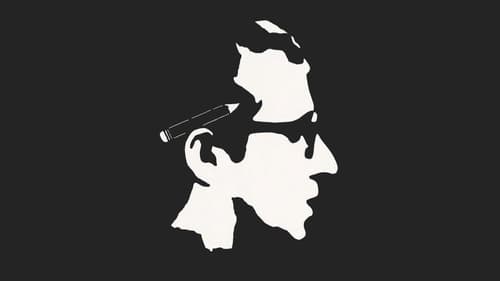
Self (archive footage)
A cashier poses as a writer for blacklisted talents to submit their work through, but the injustice around him pushes him to take a stand.
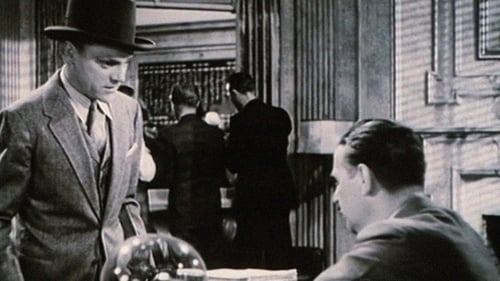
Self (archive footage)
Period music, film clips and newsreel footage combined into a visual exploration of the American entertainment industry during the Great Depression.

Self (archive footage)
Documentary of the U.S. Senator Joseph McCarthy, who rose to prominence in the early 1950s by trumpeting allegations of a vast conspiracy by alleged Communist agents whom he claimed had infiltrated the U.S. government, media, film industry, labor unions and other organizations. (IMDb)
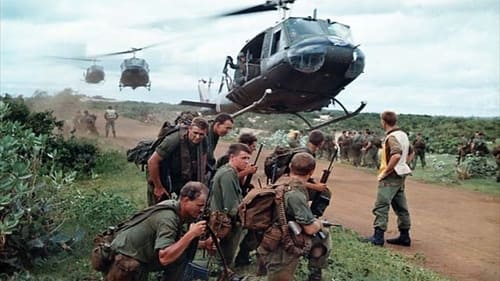
Self (archive footage)
Many times during his presidency, Lyndon B. Johnson said that ultimate victory in the Vietnam War depended upon the U.S. military winning the "hearts and minds" of the Vietnamese people. Filmmaker Peter Davis uses Johnson's phrase in an ironic context in this anti-war documentary, filmed and released while the Vietnam War was still under way, juxtaposing interviews with military figures like U.S. Army Chief of Staff William C. Westmoreland with shocking scenes of violence and brutality.

Self (archive footage)

amerikansk president
Swedish journalist visits Korea to report on the situation during the war

Lui-même
A compilation of Canadian news stories from 1947 including: long skirts, a new look in women's fashion; scenes of a record snow storm; a representative group of Canadians receive the first Canadian citizenship certificates at the Supreme Court of Canada; 18-year-old Barbara Ann Scott in Ottawa after winning the amateur European and World figure skating championships and being presented the trophy by Governor General Viscount Alexander for defending her North American title; postage stamps that commemorate the 100th anniversary of the birth of Dr. Alexander Graham Bell including shots of his home in Brantford, Ontario; the Dominion Ski Championships at Mont Ste-Anne, Quebec with twins Rhoda and Rhona Wurtele of Montreal and Tom Mobraaten of Vancouver.

A propaganda short about the 1944 United States presidential election, produced by the Office of War information, for overseas distribution. It is meant to explain how the democratic process in America works.

Self (archive footage) (uncredited)

Self (Archive Footage)
Billy Graham was a man known worldwide for his southern charm, unmistakable voice and most importantly to him, his love and devotion to Jesus Christ. Lesser known, however, is his role as a statesman of the United States. Despite never holding public office, Graham comforted the nation in some of its darkest hours, spread its causes and principles to all corners of the globe, and counseled every president from Harry Truman to George W. Bush. This is the story of the unelected statesman.
